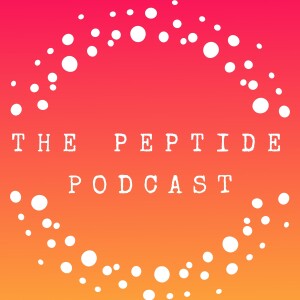
Today we will talk about natural supplements used for joint pain and the science behind some of the claims on the labels. But it's important to remember that just because something is labeled as "natural" doesn't always mean it's better or safer for you.
Problems with your joints can happen at any age. But when we get older, our joints become stiffer and less flexible. The fluid in our joints may also decrease, and the cartilage may begin to rub together and eventually wear away. These changes may lead to injuries or conditions like osteoarthritis, rheumatoid arthritis (RA), gout, and psoriatic arthritis (PsA).
When our joints break down, it may cause inflammation in the joint space and cause stiffness and pain. Not only can joint stiffness and pain cause physical limitations that may interfere with your work or personal life, but it can start to affect your mood and cause some people extreme stress.
What supplements can help with joint pain?
Clinical studies show that turmeric (curcumin), hydrolyzed collagen, L-carnitine (an amino acid), passion fruit peel extract, and Indian frankincense (Boswellia Phytosome) may help improve osteoarthritis in the short term.
Omega-3 fatty acids may help people with osteoarthritis or those with inflammatory arthritis (gout, RA, PsA). But it's important to know that these supplements only help with symptom relief. They don't cure or reverse any damage that the condition has caused.
CBD oil (Hemp Oil) has also become increasingly popular over the past few years with claims that it can help with chronic pain. Some studies have shown promising results, but more research on humans is needed. And there are no universal guidelines on how much CBD oil you should use for chronic pain.
When it comes to CBD oil, make sure to look for products that are lab tested by third parties. Make sure the label has the amount of cannabinoids listed along with a complete list of ingredients, instructions, storage information, lot number, and expiration date. You'll want to avoid CBD products that don't have the company or contact name listed.
Is there anything else besides supplements for joint pain?
So you've tried everything to help your joint pain. You've tried several different supplements. You've tried to incorporate anti-inflammatory foods into your diet (e.g., berries, fatty fish, and leafy green vegetables) to help fight inflammation in your joints. And you drink plenty of water throughout the day to help make the synovial fluid in your joints.
You even get regular exercise to maintain a healthy weight and to help keep your joints lubricated and stretch before and after each workout to help avoid unnecessary injuries.
No matter what you've tried, you continue to have joint pain and stiffness. This is where BPC 157 may help.
BPC 157, or Body Protection Compound 157, is a peptide derived from stomach acid. It works by decreasing inflammation and increasing blood flow to damaged tissues. As a result, it speeds up the healing of wounds, tendons, ligaments, bone injuries, your nervous system, and even the digestive tract.
How do you use BPC 157?
For general use, BPC 157 can be taken either orally or injected under the skin (subcutaneously) once daily. If injury-specific, dosing is SPLIT into TWICE DAILY injections under the skin, specifically around the injury site.
Possible side effects include redness, itching, or swelling at the injection site. You should tell your healthcare provider about any side effects you experience.
Thanks again for listening to The Peptide Podcast, we love having you as part of our community. If you love this podcast, please share it with your friends and family on social media, and have a happy, healthy week!
Pro Tips
We're huge advocates of using daily collagen peptide supplements in your routine to help with skin, nail, bone, and joint health. But what do you know about peptides for health and wellness?
Giving yourself a peptide injection can be scary or confusing. But we've got you covered. Check out 6 tips to make peptide injections easier. And, make sure you have the supplies you'll need. This may include syringes, needles, alcohol pads, and a sharps container.
More Episodes
 2023-02-02
2023-02-02
 2023-01-26
2023-01-26
 2023-01-12
2023-01-12
 2022-12-08
2022-12-08
 2022-11-24
2022-11-24
 2022-11-17
2022-11-17
 2022-10-20
2022-10-20
 2022-10-13
2022-10-13
 2022-10-06
2022-10-06
 2022-09-29
2022-09-29
 2022-09-22
2022-09-22
 2022-09-15
2022-09-15
 2022-09-08
2022-09-08
Create your
podcast in
minutes
- Full-featured podcast site
- Unlimited storage and bandwidth
- Comprehensive podcast stats
- Distribute to Apple Podcasts, Spotify, and more
- Make money with your podcast
It is Free
- Privacy Policy
- Cookie Policy
- Terms of Use
- Consent Preferences
- Copyright © 2015-2024 Podbean.com






